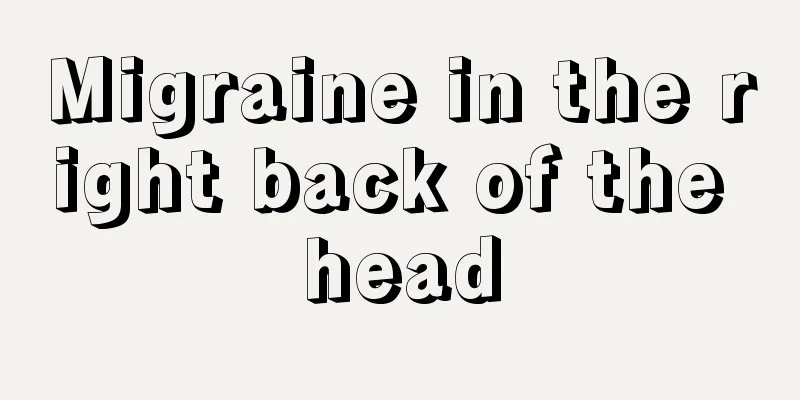How long does it take for the heart to recover after radiofrequency ablation?

|
Arrhythmia is a very common disease in normal times. There are many reasons for arrhythmia. If arrhythmia occurs frequently, it needs to be actively treated. Radiofrequency ablation is a minimally invasive surgery that usually does not require open-chest treatment. The trauma to the human body is very small, and the recovery is usually very fast. For those who cannot undergo radiofrequency ablation, how long does it take for the heart to recover? How long does it take for the heart to recover after radiofrequency ablation? Radiofrequency ablation surgery is a conventional method of minimally invasive treatment of cardiac tachyarrhythmias. It is characterized by small trauma, quick recovery, and the patient can return to normal life the next day. Radiofrequency ablation is a traumatic treatment of the heart, which is mainly accomplished through radiofrequency thermal energy. That is, local thermal damage to the myocardium causes necrosis of the arrhythmia lesions to achieve the treatment goal. This local damage and necrosis will not affect heart function, so activities can be resumed after 24 hours. It takes several weeks for the necrotic myocardium to organize and form scars, which can also be understood as the time it takes for the heart to fully recover. Why do palpitations occur after cardiac radiofrequency ablation? Cardiac radiofrequency ablation is also a major operation, and the body needs time to recover slowly. If the patient has symptoms of palpitations, it is necessary to consider whether he has done too much physical labor recently, or whether he has rested on time. It is best to get enough sleep every day. If necessary, go to the hospital for regular check-ups. Cerebrovascular function tests can be done, mainly to consider the possibility of palpitations caused by insufficient cerebral vascular supply. In addition, the use of some drugs after surgery should also be cautious. 1. Maintenance after cardiac radiofrequency ablation is very important. Patients after surgery must strengthen their nutrition and try to keep their mood as comfortable as possible. In terms of diet, you should consume more high-quality protein and never eat irritating, spicy, sour, raw or cold foods. 2. Patients should also supplement more vitamins and trace elements, especially focus on enhancing resistance. They can cooperate with proper physical exercise, drink more water, eat more fresh vegetables and fruits, eat less greasy fried food, and never get easily excited. 3. The most common symptom for patients after surgery is dizziness. Some patients with insufficient blood supply to the brain will have dizziness, which can lead to palpitations. The success of the operation should also be considered. In addition, the symptoms of postoperative palpitations should also take into account factors such as other diseases suffered by the patient. Note: If you have symptoms of palpitations after surgery, it is recommended to go to the hospital for a re-examination of the electrocardiogram. Palpitations may also be caused by vestibular nerve dysfunction. It is best to go to the hospital for regular check-ups, and patients should also have a regular schedule. |
<<: What are the dangers of liver radiofrequency ablation surgery?
>>: What causes pain during the recovery period of lumbar radiofrequency ablation?
Recommend
What are the late symptoms of melanoma
Melanoma is not common in China, but it is the mo...
What makes you age? Various reasons for aging in the city
Everyone will feel scared when hearing the word &...
What to do if bitten by a grasshopper
The so-called grasshopper is what we often call g...
Things to note before gastric cancer examination
Precautions to take before a gastric cancer exami...
Is left ventricular hypertrophy serious?
First of all, we should not think that left ventr...
Will I get an infectious disease if I do a TCT cervical cancer test?
Cervical cancer is the third most common malignan...
What is cervical spondylosis
Cervical spondylosis is a series of symptoms caus...
What is the purpose of a large non-retention enema? Can constipation be treated
The main purpose of large-volume non-retaining en...
What tests are needed to diagnose bone cancer
What tests are needed to diagnose bone cancer? Bo...
Only 20 years old and there is a sound when I turn my neck
It is a very common phenomenon that the neck make...
What are the recipes for slimming tea? Good detoxification and oil removal effect!
Obesity is a problem that bothers many women. The...
Nursing measures for colon cancer
There are many taboos for patients with colon can...
What is the diagnosis method for thyroid cancer
What is the diagnosis method for thyroid cancer? ...
What to eat after gastrointestinal cancer surgery
After discovering gastric cancer, appropriate tre...
Nursing methods for patients with lung cancer
Lung cancer is not only a common disease in our c...









